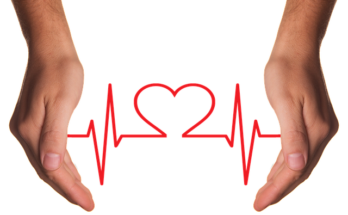
Health FRS Unveils Innovative Solutions: A Pioneering Leap in Healthcare
December 24, 2023 Imphal By Banti Phurailatpam:
In a groundbreaking announcement that reverberates across the healthcare industry, Health FRS has unveiled a series of innovative solutions aimed at reshaping the landscape of medical technology and patient care. The introduction of these advancements reflects Health FRS’s unwavering commitment to pushing the boundaries of healthcare excellence, leveraging cutting-edge technologies, and prioritizing patient well-being. This comprehensive report delves into the key elements of Health FRS’s revolutionary offerings and the potential impact on the future of healthcare.
Health FRS: A Beacon of Innovation
Health FRS, a leading healthcare technology company, has long been recognized for its commitment to innovation and the pursuit of excellence in patient care. With a track record of pioneering solutions that blend technology and healthcare seamlessly, the company has carved a niche for itself in the dynamic and ever-evolving healthcare ecosystem.
The Unveiling: Health FRS’s Technological Marvels
1. Telehealth Redefined:
Health FRS’s revolutionary telehealth platform takes remote healthcare to unprecedented heights. With state-of-the-art video conferencing, real-time health monitoring, and integrated diagnostics, patients can now receive expert medical consultations from the comfort of their homes. The platform promises to bridge geographical gaps, making quality healthcare accessible to individuals in remote areas.
2. AI-Powered Diagnostics:
Leveraging the power of artificial intelligence, Health FRS introduces a diagnostic solution that not only enhances accuracy but also expedites the diagnostic process. The incorporation of AI algorithms allows for rapid analysis of medical images, pathology reports, and patient data, leading to quicker and more precise diagnoses. This technological leap significantly contributes to early detection and improved treatment outcomes.
3. Blockchain in Healthcare:
Health FRS embraces blockchain technology to address critical issues in healthcare data management. By ensuring the security and integrity of medical records, blockchain enhances patient privacy, streamlines data sharing among healthcare providers, and mitigates the risk of data breaches. This innovative use of blockchain technology exemplifies Health FRS’s commitment to creating a secure and interconnected healthcare ecosystem.
4. Wearable Health Tech:
The integration of wearable technology into healthcare has been a focal point for Health FRS. Their advanced wearable devices monitor vital signs, track fitness metrics, and provide real-time health alerts. This not only empowers individuals to take proactive steps in managing their health but also enables healthcare providers to access continuous, remote monitoring data for more informed decision-making.
5. Virtual Reality in Rehabilitation:
Health FRS introduces a groundbreaking approach to rehabilitation through virtual reality (VR) technology. VR-based rehabilitation programs offer immersive experiences that enhance patient engagement and motivation. This approach is particularly impactful in post-surgical recovery, physical therapy, and mental health interventions. By merging technology and rehabilitation, Health FRS aims to transform the patient experience.
Patient-Centric Approach: Putting Healthcare in the Hands of Individuals
A central tenet of Health FRS’s innovations is the shift towards a patient-centric model. By empowering individuals with tools to actively engage in their healthcare journey, the company seeks to foster a sense of ownership and responsibility for one’s well-being. The user-friendly interfaces, intuitive apps, and personalized health insights contribute to an ecosystem where healthcare is not merely reactive but proactive and preventive.
Collaborative Ecosystem: Bridging Gaps in Healthcare Delivery
Health FRS recognizes the importance of a collaborative healthcare ecosystem. The seamless integration of its technologies with existing healthcare infrastructure ensures that healthcare providers, insurers, and other stakeholders can leverage these innovations to enhance their services. Interoperability remains a key focus, allowing for the efficient exchange of information and fostering a holistic approach to patient care.
Addressing Challenges: Ethical Considerations and Regulatory Compliance
As Health FRS charts new territories in healthcare innovation, the company remains committed to ethical considerations and regulatory compliance. Data security, patient privacy, and adherence to healthcare regulations are paramount in the development and deployment of these technologies. Health FRS actively engages with regulatory bodies to ensure that its innovations align with industry standards and best practices.
Future Outlook: A Glimpse into Tomorrow’s Healthcare Landscape
Health FRS’s unveiling of these pioneering solutions marks a watershed moment in the trajectory of healthcare. The integration of technology, artificial intelligence, and patient-centric design heralds a future where healthcare is not just a service but an experience. As these innovations gain traction, the industry can anticipate a shift towards more personalized, accessible, and efficient healthcare delivery.
Conclusion: Shaping the Future of Healthcare, One Innovation at a Time
In a world where the intersection of technology and healthcare is increasingly defining the quality of patient care, Health FRS’s bold foray into innovative solutions sets a new standard. By placing the power of healthcare in the hands of individuals, embracing cutting-edge technologies, and fostering a collaborative ecosystem, Health FRS paves the way for a future where healthcare is not only effective but also empowering and transformative. As these technologies become integral to the healthcare landscape, Health FRS stands poised to shape the future of healthcare, one innovation at a time.
Health FRS Unveils Innovative Solutions: A Pioneering Leap in Healthcare Read More